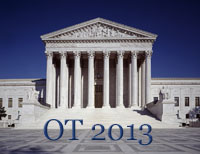Does the Legalization of Marijuana Violate International Law?
The shift toward legalization of marijuana has gained a lot of momentum in the past few years. By a recent count, more than twenty states have enacted legislation that permits use of one form or another. Most allow only medical use, but Colorado and Washington also permit recreational consumption. For present purposes, I take no position on the policy merits of this development. I do, however, want to point out that the marijuana debate tends to overlook an important issue—namely, federal tolerance for legalization of the sort that has occurred in Colorado and Washington probably places the United States in material breach of international law.
The argument is pretty straightforward: The 1961 Single Convention on Narcotic Drugs provides that parties “shall take such legislative and administrative measures as may be necessary . . . to limit exclusively to medical and scientific purposes the production, manufacture, export, import, distribution of, trade in, use and possession of” cannabis, among other drugs. Having joined the treaty in 1967, the United States is bound to comply. But for the most part, the Obama Administration has chosen not to enforce federal drug laws against recreational consumption in Colorado and Washington, and state authorities in those jurisdictions obviously do not have state prohibitions to enforce. Thus, the United States no longer takes “administrative measures” that are necessary to limit use to medical and scientific purposes. A comparable analysis applies under the 1971 Convention on Psychotropic Substances and the 1988 Convention Against Traffic in Narcotic Drugs and Psychotropic Substances, both of which contain similar provisions and bind the United States as a party.


